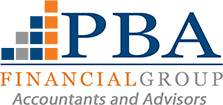ATO cracking down on taxable fringe benefits
The ATO is scrutinising organisations’ taxable fringe benefits, with a specific focus on customer loyalty programs, ride-sharing services and utility vehicles, according to a mid-tier.

RSM Australia is urging accountants to work with their clients to review their policies ahead of possible investigation by the ATO on the provision of taxable fringe benefits to employees.
One key area of focus is on employees’ use of business or personal credit cards linked to customer loyalty programs, as well as substantial personal frequent flyer points obtained through business travel.
“Businesses that let employees redeem points accumulated through business credit cards on personal expenditure, as well as employers who use points to reward or incentivise current or potential employees, may leave themselves liable to fringe benefits tax,” said Rami Brass, national head of tax at RSM Australia.
“This also extends to the use of personal credit cards by employees to accrue customer loyalty points when purchasing business goods, the cost of which is later reimbursed by the company. Businesses may also be exposed when former employees, on leaving the company, covert their points for money or other goods.”
A second area of focus is the use of ride-sharing services which aren’t included in the fringe benefits tax (FBT) exemption that applies for taxi travel between home and work locations, according to Mr Brass.
“With the disruption of the taxi industry, a significant number of employers are now using Uber and other ride-sharing services for their employees’ travel,” Ms Brass said.
“Under the FBT Act, a taxi is defined as a ‘vehicle that is licensed to operate as a taxi’. Therefore the Section 58Z exemption cannot apply, as Uber drivers are not lawfully required to hold a license to operate as a taxi.”
A third area of scrutiny for the ATO is utilities and dual cabs. Mr Brass reminded that these vehicles are only exempt from FBT providing the private use of eligible vehicles only includes travelling between home and work, with other private use needing to be ‘minor, infrequent, and irregular’
“Employers may be liable for FBT when the ATO deems regular private trips made by employees are frequent and regular (although minor) in nature,” Mr Brass said.
“Common examples include picking or dropping off children on the way to or from work and using the vehicle to do grocery shopping. This also extends to driving long distances: however infrequent and irregular this might be, it is not considered minor.”
LARA BULLOCK
Monday, 05 June 2017
www.accountantsdaily.com.au
